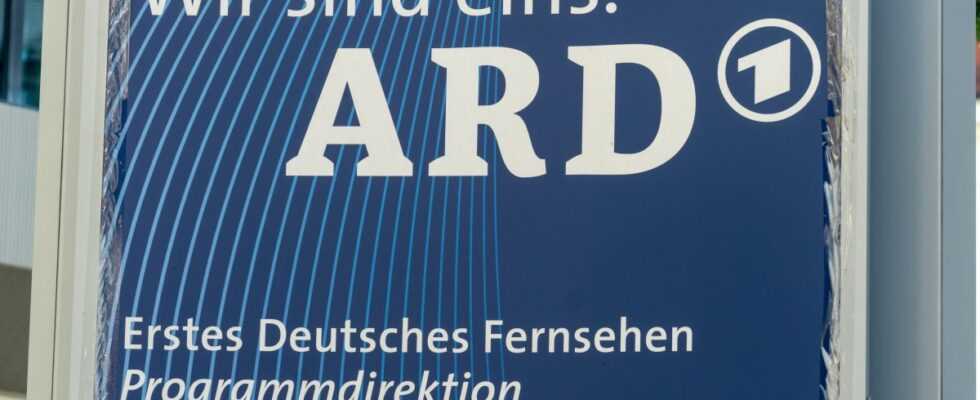New disruptive fire from Saxony-Anhalt against parts of public broadcasting: On Monday, the CDU parliamentary group backed a controversial proposal by the Minister of State for Culture and Media, Rainer Robra. Robra had already advocated in 2017 that the ARD main program “Das Erste” be reduced to a “regional showcase” and that only ZDF be retained as a nationwide broadcaster among the TV stations financed by contributions.
“Today, the parliamentary group repeatedly discussed the structure and mandate of the public broadcasters,” said their spokesman for media policy, Markus Kurz, after the meeting. “We welcomed the Broadcasting Commission’s proposals, which include a more precise definition of the mandate and a streamlining of the structure.” The parliamentary group also underlined its goal of “relieving small and medium-sized companies from multiple assessments of broadcasting fees”. In this context, the decision on the Robras initiative was made.
Turn off the first?
Previously had the Central German newspaper (MZ) reports that Saxony-Anhalt’s Christian Democrats want to “switch off” the oldest public television program. Kurz did not want to leave this in the room on Monday evening and emphasized in a message: “There was never any talk of a current shutdown of the first”.
In the long term, however, the CDU parliamentary group could imagine “abolishing the first as an independent channel,” the MZ Kurz continues, citing a written statement by the politician that is available to her, who is also the parliamentary director of the parliamentary group. The closure of the first is a long-term vision, Kurz emphasized: “We know that we cannot implement it politically at the moment, but that is our long-term goal.” Kurz announced that they wanted to coordinate this with the other countries. One way to exert pressure is at the latest with the “next contribution debate”.
Robra had originally brought an ARD showcase into play, in which Mitteldeutscher Rundfunk (MDR) and the eight other broadcasters in the working group only used their regional programs secondarily. For example, the central facilities of the ARD in Berlin can be saved, where a presence of rbb and ZDF is sufficient. The ARD Tagesschau would be “superfluous” in its current form, said the Christian Democrat.
If there are still two “national broadcasters”, “everything will be plastered over with too much of the same”, emphasized the member of the ZDF television council. In the meantime, it is said from the state chancellery led by Robra that the ARD has already reacted in part and reserved more time for regional topics in the daily topics.
Abstain from genders
At the same time, the CDU parliamentary group in Saxony-Anhalt accused the fee-financed broadcasters of having distanced themselves from their viewers. “We are of the opinion that in public service broadcasting, minority opinions are often stronger than the opinion of the majority,” Kurz complained, according to MZ. You should, for example, “not only let those who still want more and more climate protection have their say, but also those who have to pay for it”. He also appealed to ARD, ZDF and Deutschlandradio to refrain from gendering and to focus their energy on the core mission.
The parliamentary manager of the left in Saxony-Anhalt, Stefan Gebhardt, rejected the CDU demands: Without the first there would be no more competition among the public right. The MDR would also no longer have a chance to accommodate reports about the state in a nationwide program. The federal manager of the Greens, Michael Kellner, tweeted: “The CDU Saxony-Anhalt is once again turning freely to the right.” An intact public service broadcasting is a cornerstone of our democracy.
The relationship between Saxony-Anhalt politics and the public sector has been tense for a long time. In 2020, the CDU-led state government tried to prevent the contribution increase supported by the 15 other states. Prime Minister Reiner Haseloff (CDU) withdrew the relevant state treaty he had already signed shortly before the vote in the state parliament. The Federal Constitutional Court later judged this to be a violation of the freedom of broadcasting and pushed through the contribution increase from 17.50 to 18.36 euros per month.
(olb)
